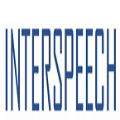Building on the success of the ADReSS Challenge at Interspeech 2020, which attracted the participation of 34 teams from across the world, the ADReSSo Challenge targets three difficult automatic prediction problems of societal and medical relevance, namely: detection of Alzheimer's Dementia, inference of cognitive testing scores, and prediction of cognitive decline. This paper presents these prediction tasks in detail, describes the datasets used, and reports the results of the baseline classification and regression models we developed for each task. A combination of acoustic and linguistic features extracted directly from audio recordings, without human intervention, yielded a baseline accuracy of 78.87% for the AD classification task, an MMSE prediction root mean squared (RMSE) error of 5.28, and 68.75% accuracy for the cognitive decline prediction task.
翻译:“ADRESS”在Interspeech 2020 年“ADRESS挑战”的成功吸引了来自世界各地的34个团队的参与,“ADRESSo Challenge Challenge”的目标是三个具有社会和医学相关性的难以自动预测的问题,即:发现阿尔茨海默氏痴呆症,推断认知测试得分,预测认知下降。本文详细介绍了这些预测任务,介绍了所使用的数据集,并报告了我们为每项任务开发的基线分类和回归模型的结果。从录音中直接提取的声学和语言特征组合,在没有人类干预的情况下,为“AD”分类任务得出了78.87%的基线精确度,即“MSE”预测根值平均正方差5.28,以及“RMSE”预测任务68.75%的准确度。





